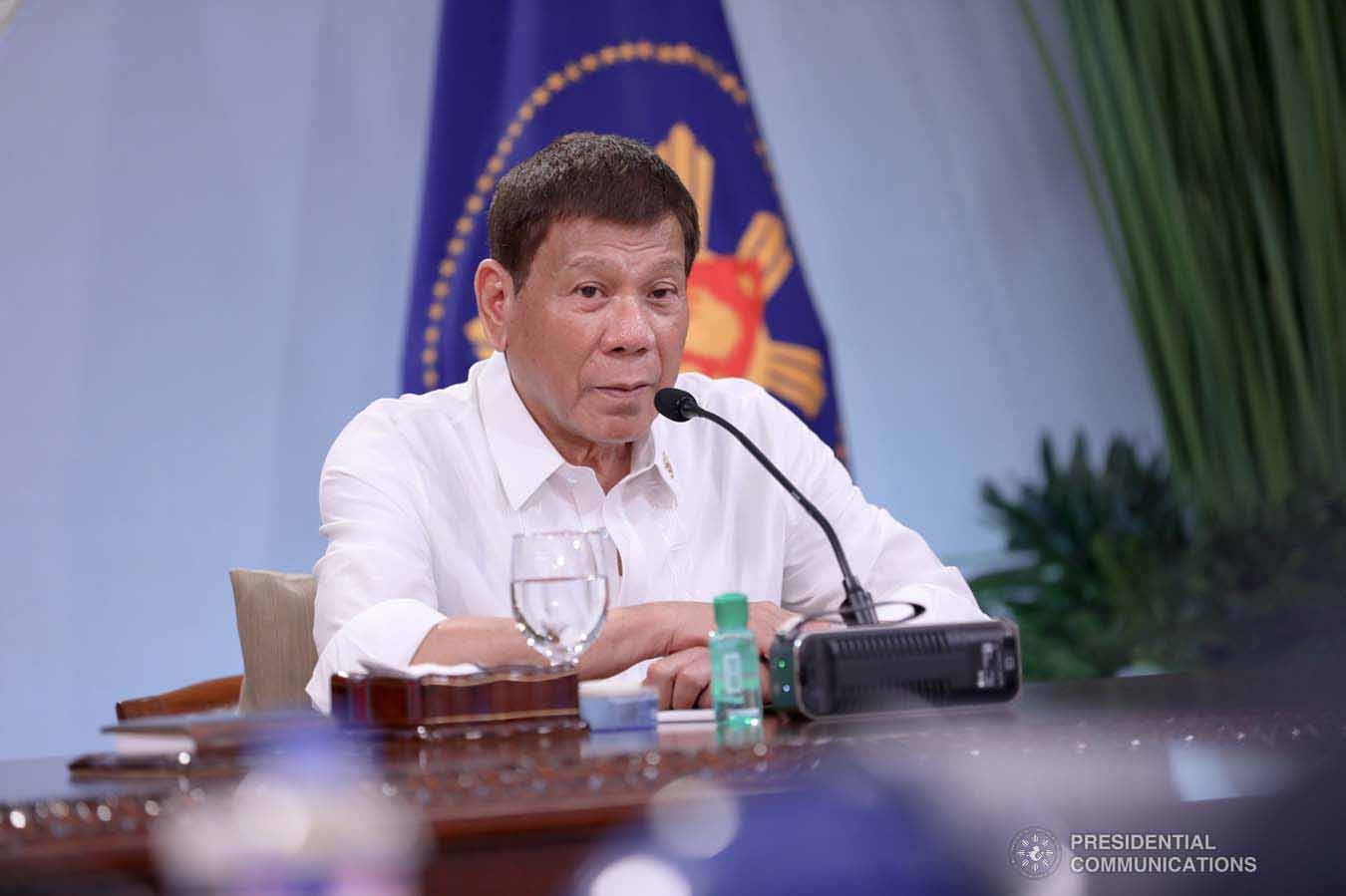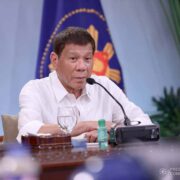
PHILIPPINE President Rodrigo Duterte is looking to speak with the United States government about the Visiting Forces Agreement (VFA), a treaty between the two countries that the president had previously wanted to terminate.
In a prerecorded address aired Monday, July 19, the chief executive said that the proposed extension of the VFA is “on the table,” pending a discussion with the U.S. government.
“Itong Visiting Forces Agreement, ang extension niyan is on deck, on the table (The extension of the Visiting Forces Agreement is on the deck, it’s on the table),” said Duterte.
He added, “Ngayon, gusto ko lang… makipag-ugnayan (Now, I just want to… coordinate with) or I just want to talk to some people in Washington, be it from the Office of the President or the State Department or the Defense Department.”
Last month, the country’s Department of Foreign Affairs (DFA) announced that Duterte extended the abrogation of the VFA for another six months.
“The president conveyed… his decision to extend the suspension of the abrogation of the Visiting Forces Agreement by another six months while he studies and both sides further address his concerns regarding particular aspects of the agreement,” Foreign Affairs Secretary Teodoro Locsin Jr. said in a video message posted by his office on June 14.
In response to Duterte’s statement, the Pentagon said that a U.S. official will visit Manila to reaffirm defense ties and bilateral relations between the two nations.
“Secretary of Defense Lloyd Austin III departs on a trip Friday, July 23, to visit Alaska, Singapore, Hanoi and Manila,” Pentagon Press Secretary John Kirby said Tuesday, July 20.
“Throughout his trip, Secretary Austin will meet with key leaders to reaffirm defense relationships and conduct bilateral meetings with senior officials,” he added.
According to Kirby, Austin’s visit will “demonstrate the importance the Biden-Harris Administration places on Southeast Asia and on ASEAN as an essential part of the Indo-Pacific’s architecture.”
“This trip will underscore the enduring U.S. commitment to the region, and our interest in upholding the rules-based international order in the region and promoting ASEAN centrality,” he added.
The VFA, which came into force in 1999, covers the conduct of U.S. soldiers in the Philippines. Among the provisions of the deal include relaxed visa and passport policies for U.S. troops, and the rights of the U.S. government to retain its jurisdiction over its military personnel when they commit crimes in the Philippines.
In February 2020, the Philippines sent the U.S. a notice terminating the VFA reportedly after the U.S. canceled Senator Ronald “Bato” Dela Rosa’s visa.
The abrogation was later suspended in June “in light of political and other developments in the region,” and the suspension was extended in November for another six months to enable the Philippines and the U.S. to find a more enhanced, mutually beneficial, mutually agreeable, and more effective and lasting arrangement on how to move forward in their mutual defense.
In November, the suspension was extended to “enable us to find a more enhanced, mutually beneficial, mutually agreeable, and more effective and lasting arrangement on how to move forward in our mutual defense,” according to Locsin.






